More than 300 participants attended the First Family Conference held 10 August at UP NISMED organized by the Bukluran ng Pamilyang Pilipino (BPPI) with the theme "Building the Resiliency of the Filipino Family."
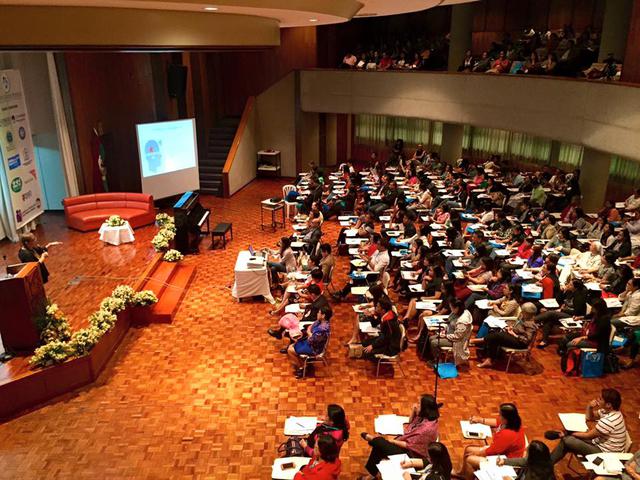
The Church of Jesus Christ of Latter-day Saints co-organized the event along with other family advocate organizations. Resource speakers who lent their expertise were Dr. Honey Carandang, President and Founder of MLAC Institute for Psychosocial Services, Inc.; Mr. Anthony Pangilinan, Chairman of Businessworks and Chief Trainer of Inspire Leadership Consultancy; Dr. Cornelio G. Banaag, President of the Philippine Mental Health Association and Child, Adolescent and Adult Psychiatry of the Medical City. Three youth reactors from The Church of Jesus Christ LDS, Kaisahang Buhay Foundation and SOS Children's Village shared their thoughts on the topics presented and enjoined the participants to work together in strengthening families. The Synthesis and Closing was given by Mr. Leopolo M Moselina, BPPI Vice-President.
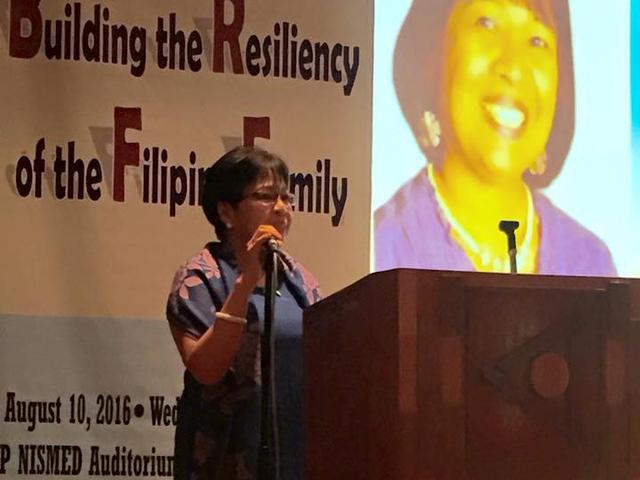
Ms. Mae Fe Ancheta-Templa, Undersecretary for Institutional Dev. Group, Department of Social Welfare and Development, gave an inspirational message. According to Ms. Ancheta-Templa the goal of the DSWD is "to provide financial and other compassionate assistance in cooperation with other government agencies that will benefit the poor, vulnerable and marginized people, and communities in the Philippines to help them stand on their own feet."
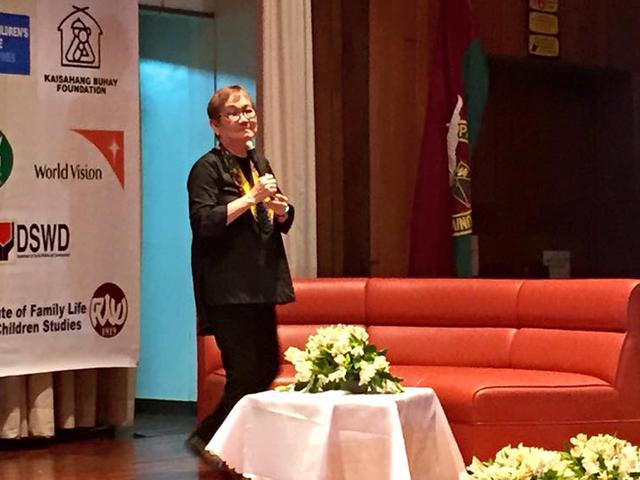
Dr. Honey Carandang, President and Founder of MLAC Institute for Psychosocial Services, Inc.
The title of Dr. Carandang's address was "The Filipino Family: Surviving the 21st Century." Since the year 2000 daily stresses of urban life have increased. Many families deal with economic hardship and a hectic pace of life. One notable change has been the feminization of the global labor migration. Now 50-60% of international laborers are women. According to Dr. Carandang, "Findings show that the performance, achievement and behavior of a child are deeply affected when the mother is away, rather than the father. There is a pervasive sadness and the fathers are at a loss." Dr. Carandang offered regular quality family time as helpful to strengthen the family. Quality time requires our full presence with no distractions, deep listening and kindness. She emphasized that the three most important things are to "Be kind, be kind, be kind." She also introduced the practice of "mindfulness" and encouraged all social workers to take time for solitude.
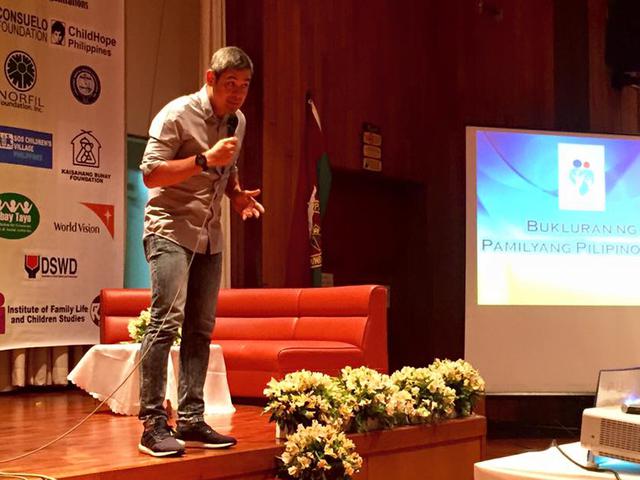
Mr. Anthony Pangilinan, Chairman of Businessworks and Chief Trainer of Inspire Leadership Consultancy.
Mr. Pangilnan started off by admitting that people cannot be changed. "We are here to disturb--we can provide information that will prompt them to think about what they are doing. Disturbance to a good heart leads to positive change." Opportunities to change in small ways add up to big results. He said "Moments multiplied will define a family." One useful tool is to focus on what is good, positive or successful rather than immediately focus on failures or insufficiencies. While discussing his son's report card, Mr. Pangilnan spent a lot of time focusing on the classes that he son did well on, asking him what made the class interesting and how he did so well. Later he asked him what he could do to change his experience in the courses in which he performed poorly. "Do not focus on what is not there. Focus on what is there and build upon it."
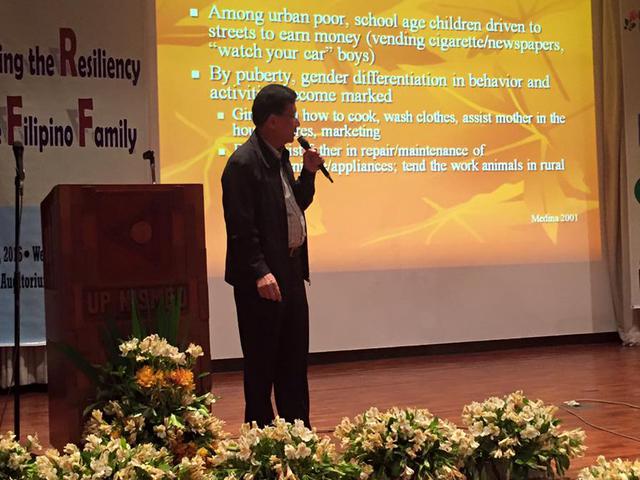
Dr. Cornelio G. Banaag, President of the Philippine Mental Health Association and Child, Adolescent and Adult Psychiatry of the Medical City
Dr. Banaag discussed the importance of discipline in the family. "We all have a fundamental need to belong to a group. To be good members of the group we need to be self-disciplined and compliant. Research shows that a self-disciplined child is more confident and resiliant. The erosion of discipline is the erosion of the family. When there is no center, everything collapses."
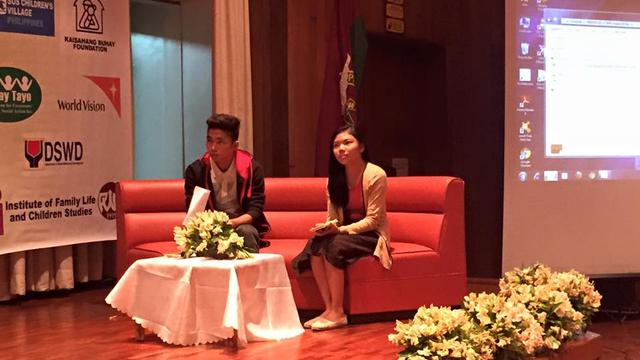
Youth reactors, Sandy Mark Pagkaliwanagan, SOS Children's Village and Katherine Pajaro, Church of Jesus Christ of Latter-day Saints. Not pictured: Katherine Miles De Leon-Roxas, Kaisahang Buhay Foundation.
Katherine Miles de Leon-Roxas reacted to the importance of discipline in families. "Fundmental to good discipline is respect by both parents and children. Communication is a must with fairness, patience and attention build trust in a family and promote cooperation."
Sandy Mark Pagkaliwanagan spoke of the benefits and dangers of social media. "While social media is a source of happiness for young people there are negative results when young people perfer social media and avoid interacting with their brothers, sisters and parents."
Katherine Pajaro addressed how the family can become stronger in the face of challenging problems. "Traditional family values are becoming less important to millennials. It is important that we meet in the middle, both parents and children and find a balance. Talking together and sharing our concerns is critical. Sometimes young people just need to be able to talk and to be listened to. In my family, by sharing our concerns we became closer and were able to learn from each other. We all need to take responsibility for working together as a family--both parents and children--to face our challenges together."
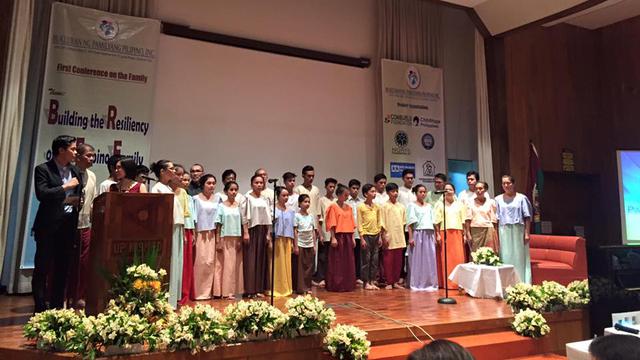
Andres Bonifacio Choir
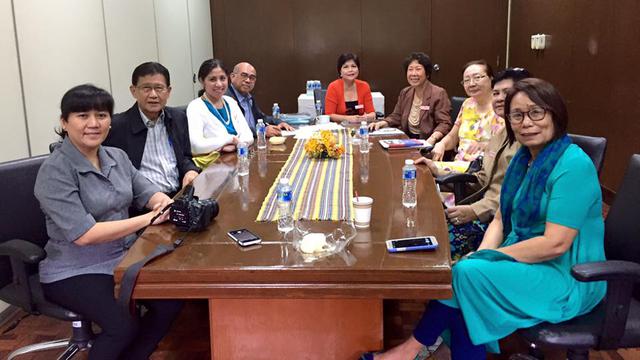
BPPI Organizing Committee
Bukluran ng Pamilyang Pilipino, Inc., formerly Family Network (FamNet), was organized in 2000 as an advocacy group of the Philippine Women's University - Institute of Family Life and Children Studies. It is an alliance of agencies working with families and communities committed to promote quality family life and well-being of children. It started as a loose organization originally composed of Consuelo Foundation, Church of Jesus Christ of Latter-day Saints, Center for Family Ministry, Child Hope-Families and Children for Empowerment and Development, Kaisahang Buhay Foundation for Grassroots Studies & Social Action, Inc., and the Department of Social Welfare and Development. Today, member organizations include the Philippine Mental Health Association, the SOS Children's Village Philippines and World Vision Development Foundation.